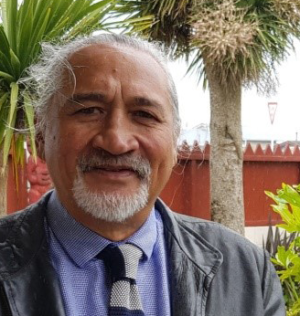Want health equity? Make Te Tiriti the backbone of every programme
 Addressing health equity is arguably the greatest challenge for MHA services in Aotearoa New Zealand.
Addressing health equity is arguably the greatest challenge for MHA services in Aotearoa New Zealand.
Three years ago, the Commission’s board committed to embedding and enacting the principles of Te Tiriti o Waitangi in the mahi of all its teams, streams, and programmes.
In doing so, the board aligned itself with a major report released by the Waitangi Tribunal in 2019.
In Hauora: Report on Stage One of the Health Services and Outcomes Kaupapa Inquiry, the Tribunal found that the Crown had breached Te Tiriti o Waitangi by failing to design, and administer, the current primary health care system to actively address persistent Māori health inequities.
The Tribunal also found the Crown had failed to give effect to the Treaty’s guarantee of tino rangatiratanga (autonomy, self-determination, sovereignty, and self-government).
The Commission embraced the five principles introduced by the Tribunal aimed to support the sector to improve health equity (ie, mana motuhake [self- determination], partnership, proactive protection, equity and options), and they now underpin its MHA quality improvement programme.
Unfortunately, other organisations in the health industry have not been so keen to come on board.
Despite being agents of the Crown and obliged to provide services in ways that meet specific cultural needs and aspirations of Māori, the experience of our team working with MHA services nationally is that the capability and capacity to deliver quality services for Māori varies depending on where you are.
We also find access to competent mātauranga Māori practice is poor in many districts because of funding issues and a lack of competent people and capital resources.
Māori already suffer disproportionate impacts of social determinants, and when they encounter something unexpected such as COVID-19, and are coerced to seek help from MHA services, they can find these services unwilling to engage with each other across the cultural divide.
They may also experience institutional and cultural misunderstandings and biases that prevent the best use of resources.
The Commission’s Māori advisory group realises that ‘same old, same old’ will not improve outcomes for Māori consumers facing mental health challenges.
That’s why the Commission’s commitment to Te Tiriti as the backbone and foundation for all programmes is so valuable.
It means the creation of programmes aimed at resetting a bicultural approach, with innovations brought about by quality improvement methodology.
This includes striving to introduce a better system of identifying, analysing and addressing health inequity, as well as deeper involvement of consumers and whānau working with health workers and other key support people to co-design their own care.
